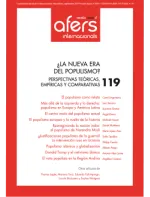Populism as a narrative and the crisis of representative democracy

In this article a critical analysis is made of some of the most influential approaches to contemporary populism and an alternative hypothesis is proposed. “Ontologising” populism (Laclau), examining it from a phenomenological perspective (Canovan) and observing it as an ideology (Freedon, Mudde, Stanley) are objectionable strategies as they are, from our perspective, overly intellectualist. Instead, a working hypothesis is proposed here that considers populism as a political narrative, placing the focus on the importance of political emotions and imagination. An overview is also given of the structural conditions (sociopolitical, economic and technological, among others) of the global wave of populism and the problems it has overcoming them.
Keywords: populism, representative democracy, capitalism, emotions, politics
DOI: doi.org/10.24241/rcai.2018.119.2.13
>> The full text articles of this issue are available only in Spanish language